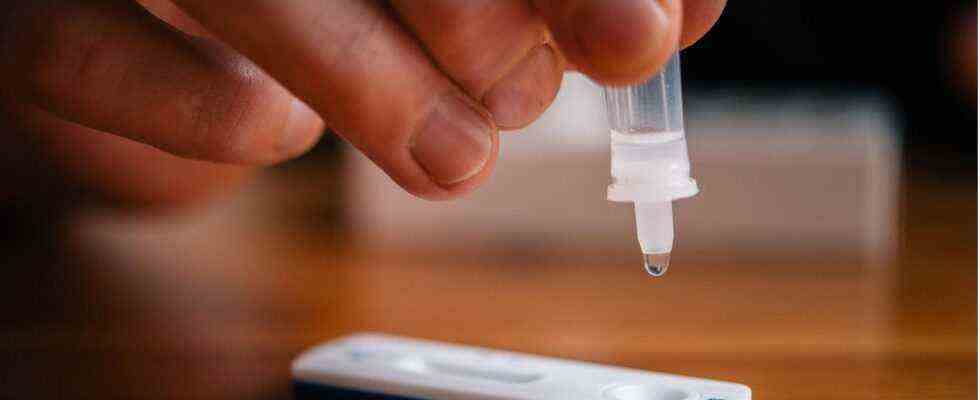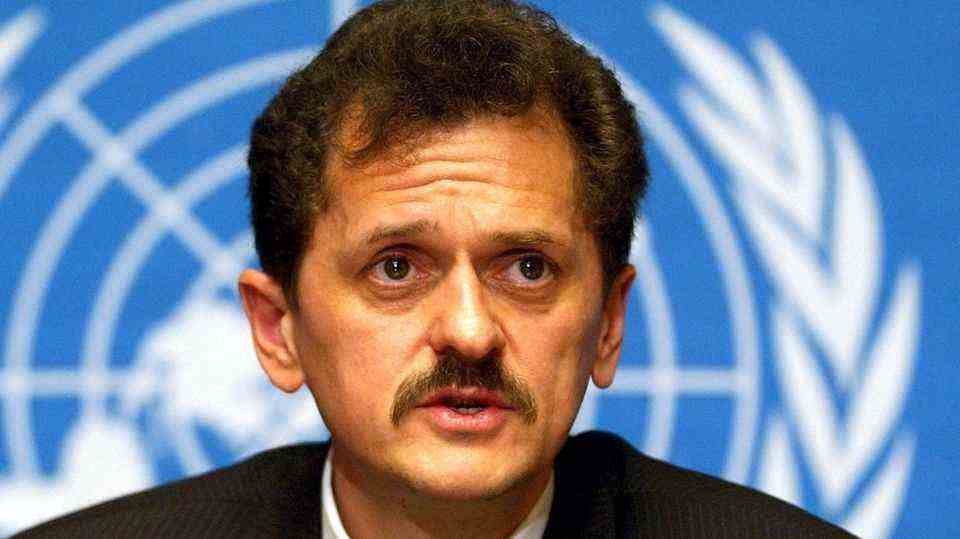Possible viral infection
Positive corona test: what needs to be done – and what’s next?
A man drips a solution onto the test cassette of a coronavirus self-test
© Zacharie Scheurer / DPA
The omicron variant of the coronavirus is spreading. Vaccinated and boosted people can also become infected and spread the virus. What to do if the test result is positive
How is Germany doing in the fight against the coronavirus? A reliable answer to the question is apparently not currently possible. Shortly before the turn of the year, Federal Health Minister Karl Lauterbach (SPD) warned not to underestimate the existing danger. In view of the under-reporting of new infections due to fewer tests and reports in the course of the holidays and vacations, the current infection process is likely to be significantly more critical than the numbers currently show.
A A clearer picture of the situation should be available in time for the federal-state round next Friday. The future crisis course should also be discussed there. Lauterbach has already announced new resolutions that are also aimed at combating the more contagious Omicron variant of the virus. “The number of cases will rise very sharply,” he predicted.
It feels like the impacts are getting closer and closer in your own environment, and cases of infection are increasing in your circle of friends and relatives. Even fully vaccinated and boosted people can contract the coronavirus (and spread it), although vaccination breakthroughs are less common. What should I do if the test result is positive? The overview.
My self-test or quick test shows a positive result. What to do?
If you get a positive result after a Self test or one Rapid antigen test (which is carried out in test centers, for example), you could be infected with the coronavirus. To spread a possible further spread of the pathogen, you should stay at home and avoid contact with others.
To get a reliable diagnosis, one must then a PCR test carried out, which confirms or refutes your findings. A subsequent negative quick test or self-test cannot cancel a positive result.
“Come Impf And Find Out”: 150 brands change their slogans for vaccination campaign – these are the 20 best
20 images
Where can I get a PCR test from?
The PCR test is considered the “gold standard” among the corona tests. The samples are taken by medical staff, the evaluation by laboratories. And after a positive self-test or rapid antigen test – according to the currently applicable federal test regulation – it is for you free of charge. Anyone who is also entitled to free PCR testing, can be read here.
they should Arrange a test appointment as soon as possible, about via the online search of the patient service or by phone at your family doctor’s practice or a local test center.
The Laboratory will notify you of the test result, the health department also receives a message. According to the recommendation of the Federal Ministry of Health, you should stay at home and not meet anyone until the result is available.
A corona infection was found. What’s next
If you have been confirmed to be infected with the coronavirus by a PCR test, you must be in domestic isolation go. The responsible health department will contact you and order you to be isolated at home.
How long the isolation obligation lasts, is subject to various criteria and can be decided on a case-by-case basis. Country-specific regulations may also apply. An arranged insulation does not end automatically, but is canceled again by the responsible health department.
Also for the isolation applies to fully vaccinated persons, with the exception of: Without symptoms, the isolation time is shortened to five days – but only if you are symptom-free after this time and can show a negative PCR test result.
Helpful contact points for the coronavirus
Many questions about the coronavirus cannot be answered across the board due to their complexity and require a targeted search for answers. A selection of helpful contact points to answer your further questions:
If you are worried about being infected with the coronavirus, asks the Federal Ministry of Health to contact your family doctor by phone or the number of the medical on-call service to be dialed: 116117.
In addition, the Federal Ministry of Health recommends several hotlines that provide nationwide information on the subject:
Sources:Patient service, Federal Ministry of Health, Federal Center for Health Education, “Aponet”, Robert Koch Institute (RKI)


